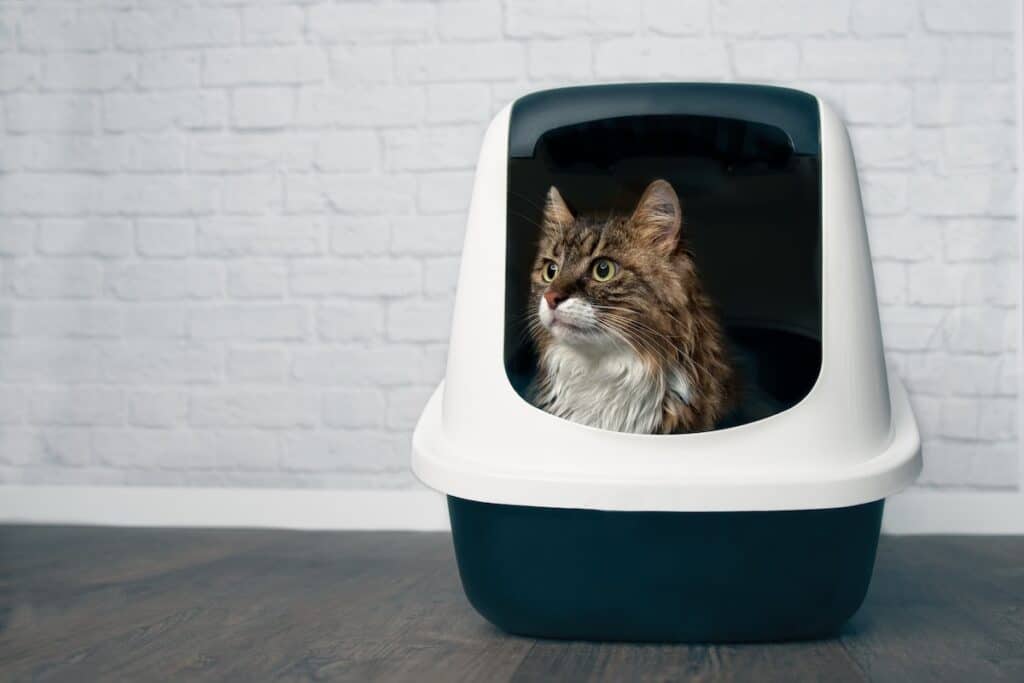If your cat has diarrhea, don’t fear. In most cases it’s not serious and will go away on its own. We’ll give you the causes, symptoms and treatment for diarrhea in your cat so you can make informed choices as an owner.
What is diarrhea?
Diarrhea is when you have loose or watery stools. This happens when your body can’t absorb water, nutrients, and electrolytes from your food properly. Diarrhea itself is not a disease, but it could be a sign of another health problem. How can I tell if my cat has diarrhea?
If your cat is housebroken but starts urinating or defecating outside the litter box, or if its stools are unformed or watery, it has diarrhea. However, if the cat is still using the liter box and covering up its feces, you may not notice at first that it has diarrhea. Diarrhea in cats may also be associated with soiling and staining of fur around their back end, especially in long-haired breeds like Maine Coons.
Remember that it is normal for cats to have different poop sometimes. But, if your cat has watery or soft poop more than two days in a row, take them to see the vet. If you have more than one cat, figure out which one has diarrhea before doing anything else.
Causes of diarrhea in cats
There are many things that can cause diarrhea. These include viruses, bacteria, coccidia, and intestinal worms (hookworms, roundworms whipworms). Other causes could be eating something that you are intolerant to or that you are allergic to.
In most cases, the diarrhea is being caused by your cat’s diet. Certain canned or dry foods might not go well with your cat’s digestive tact. They also might be stale or rotten.
Treatment of diarrhea in cats
If your adult cat is healthy except for gastrointestinal problems, your veterinarian may tell you not to feed them for 24 hours. Or, you can give them small amounts of a veterinary diet. This diet has the right mix of fibers that help the good bacteria in your cat’s intestine and antioxidants to keep their immune system strong while they are getting better.
Probiotics are bacteria that help with a cat’s intestinal health. They can help with diarrhea. You can buy probiotics, but first check with your veterinarian to see if they are good quality and will work for your cat.
In many cases, acute diarrhea can be fixed with this type of conservative treatment. This lets the body’s natural healing process fix the problem without knowing what caused it in the first place. As your cat’s stools get back to normal, their regular diet can usually be given back to them within seven to ten days.
If you recently changed up your cat’s diet and gave them new foods, try switching back to the old foods. Or try giving them food from a different box or batch. Unfortunately, some batches of cat food are not properly sanitized.
If your cat’s illness does not improve within four days, it may get worse and your cat may have to go to the hospital. Severe diarrhea can lead to dehydration, which is when the body does not have enough water. This can cause other medical problems. If this happens, your pet will need fluids through a needle in its vein or other more aggressive treatment in the hospital.
How serious is diarrhea in cats?
The seriousness of your cat’s diarrhea depends on how long it has been going on and what other medical symptoms are present. If your cat experiences severe bloody diarrhea and/or shows more general illness signs like fever, vomiting, weakness, abdominal pain, dehydration or loss of appetite–the situation could be serious and you should get to a vet right away.
How is the cause of diarrhea diagnosed?
To find out why your cat has diarrhea, your vet will look at the cat’s medical history, do a physical examination, and collect lab samples if needed. To help the vet diagnose the problem, keep track of when the diarrhea started, how often it happens now, and what it looks like. Also note any changes you’ve made to your cat’s diet or environment.
In addition to a fresh fecal sample, your vet may ask you to bring additional tests, which could include blood work, stool and rectal swab samples for parasite examination, DNA testing, bacterial culture, radiographs (X-rays), ultrasound, and endoscopic exam.
What is the prognosis?
The prognosis for your cat will be different depending on how severe the diarrhea is, what is causing it, and how your cat responds to treatment. Most cases of diarrhea will clear up on their own, but cats with chronic diarrhea may need to eat a special diet or take medication to keep the condition under control.














